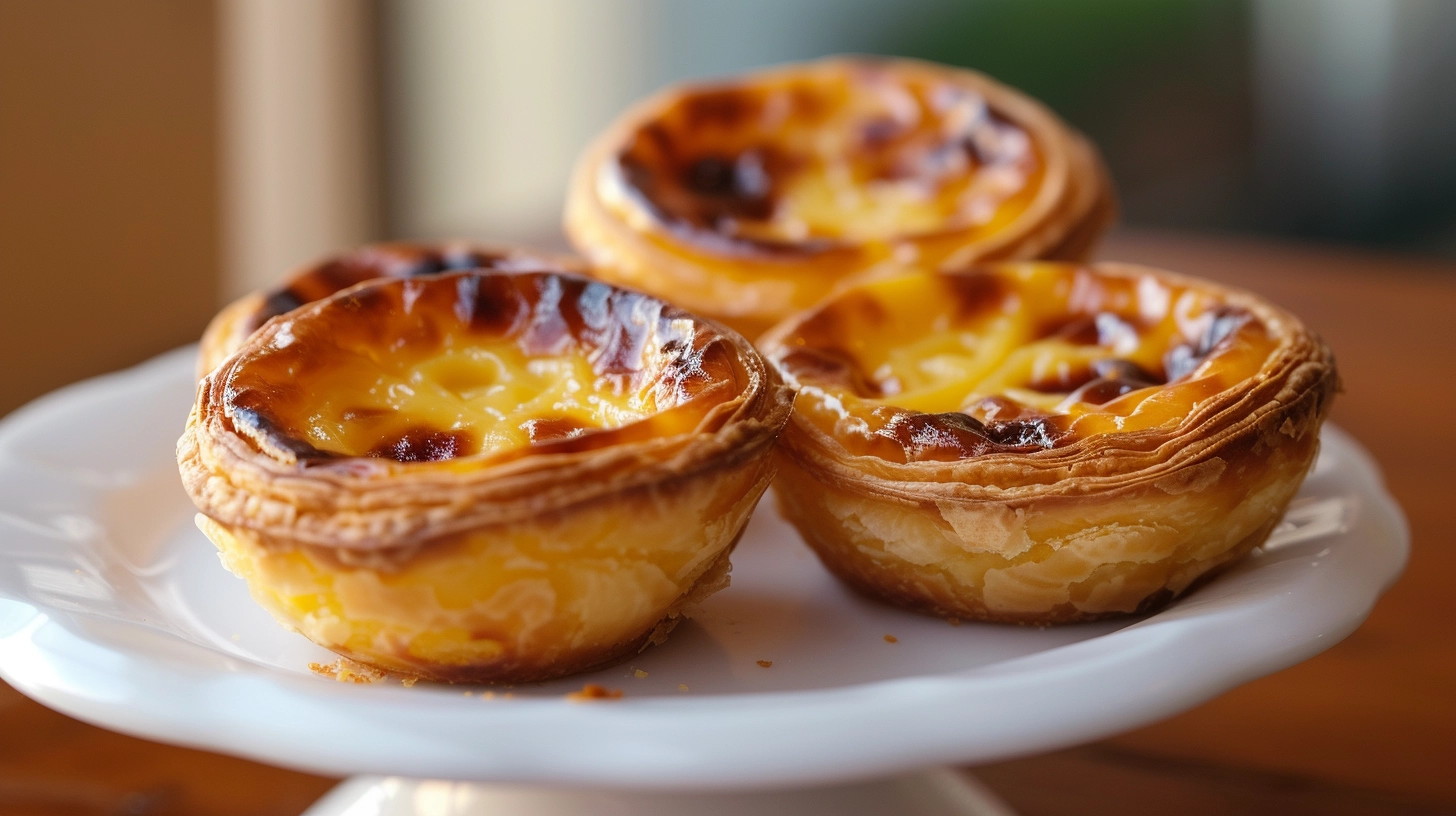Pastel de Nata holds a special place in the hearts of food lovers worldwide, celebrated for its rich custard filling, flaky pastry crust, and caramelized topping. Originating in the bustling streets of Lisbon, Portugal, this iconic pastry has captivated the taste buds of locals and tourists alike, earning a reputation as a must-try delicacy. Join us as we embark on a journey to uncover the irresistible charm of Pastel de Nata and explore the secrets of its timeless appeal.
The Origins of Pastel de Nata: A Taste of Portuguese Heritage

Pastel de Nata traces its origins back to the early 19th century when Catholic monks at the Jerónimos Monastery in Lisbon used egg whites to starch their clothes, resulting in an abundance of leftover egg yolks. To avoid waste, the resourceful monks began using the egg yolks to create delicious custard tarts, which they sold to sustain their monastery.
Over time, word of these delectable pastries spread beyond the monastery walls, and Pastel de Nata became a beloved treat enjoyed by people from all walks of life. Today, Pastel de Nata is synonymous with Portuguese cuisine, representing the perfect marriage of history, tradition, and culinary craftsmanship.
The Anatomy of Pastel de Nata: A Symphony of Flavors and Textures
At its core, Pastel de Nata is a masterpiece of simplicity, consisting of just a few humble ingredients: buttery puff pastry, creamy custard filling, and a sprinkle of cinnamon. The magic of Pastel de Nata lies in the delicate balance of flavors and textures—the crisp, flaky pastry shell providing the perfect contrast to the smooth, velvety custard center.
The custard filling is made from a rich combination of egg yolks, sugar, milk, and flour, infused with hints of vanilla and lemon zest for added depth of flavor. The pastry shell, rolled thin and baked until golden brown and blistered, forms a delicate vessel for the luscious custard, creating a harmonious marriage of sweet and savory flavors that dance on the palate with every bite.
The Pleasures of Savoring Pastel de Nata: A Culinary Journey
Eating Pastel de Nata is more than just a culinary experience; it’s a journey through the senses—a feast for the eyes, nose, and taste buds alike. The sight of a tray of freshly baked Pastel de Nata, with its golden-brown crust and caramelized surface, is enough to set the mouth watering and the stomach rumbling in anticipation.
The aroma of warm, buttery pastry mingling with the sweet scent of custard fills the air, creating an atmosphere of comfort and indulgence. And finally, the first bite—a blissful moment of pure delight as the crisp pastry shatters beneath the teeth, giving way to the creamy richness of the custard within.
Incorporating Pastel de Nata into Your Culinary Repertoire: Tips and Tricks

While Pastel de Nata is a beloved treat enjoyed on its own, it can also be incorporated into a variety of sweet and savory dishes to add a touch of Portuguese flair to your culinary repertoire. Try serving Pastel de Nata alongside a cup of strong coffee for a traditional Portuguese breakfast, or pair it with a glass of port wine for a sophisticated dessert.
For those feeling adventurous, experiment with different flavor variations of Pastel de Nata, such as chocolate, coconut, or fruit-infused custards, to create unique and inventive treats that are sure to impress. And don’t forget to share the joy of Pastel de Nata with friends and family—after all, good food is meant to be enjoyed and shared with yowestogel login loved ones.
Embracing the Timeless Appeal of Pastel de Nata
In a world filled with culinary delights, Pastel de Nata stands out as a true gem—a pastry that embodies the warmth, tradition, and hospitality of Portuguese culture. With its irresistible combination of flaky pastry, creamy custard, and caramelized topping, Pastel de Nata offers a taste of pure indulgence that is sure to leave a lasting impression on all who have the pleasure of savoring it. So why not treat yourself to the irresistible charm of Pastel de Nata and experience the joy and delight it brings firsthand?





